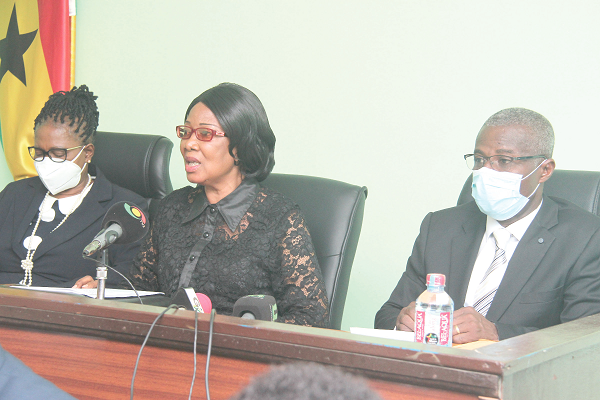This year’s Alternative Dispute Resolution (ADR) Week was yesterday commemorated in Ada in the Greater Accra Region.
Out of the 5,455 cases that were mediated through the ADR procedure last year, 2,312 were dealt with, representing a settlement rate of 42 per cent.
That followed the extension of the ADR programme to 131 courts across the country by the Judicial Service, with at least five mediators assigned to each of the courts.
The service has also established ADR secretariats in 10 regions, manned by coordinators, in addition to the training of 635 mediators as part of measures to make ADR an integral component of the justice delivery architecture.
ADR Week
A Justice of the Court of Appeal, who is also the Judge-in-Charge of ADR, Justice Irene Charity Larbi, disclosed these at the launch of the Legal Year Term at the Ada District Magistrate Court yesterday.
The ADR programme was adopted by the Judicial Service as part of its adjudication process, dubbed: “Court-connected ADR”.
Activities for the ADR Week, which started yesterday, will end on Friday, April 16, 2021, as part of measures to create awareness of the importance of ADR.
This year's programme is on the theme: "Making our courts user friendly through the use of ADR".
Purpose of ADR
Justice Larbi explained that the service instituted the programme in 2005 as an intervention to ease pressure on the regular court system and create a platform that would offer disputants the opportunity to play key roles in dispute resolution.
"The regular court system, being a rights-based process, has its own strengths, but it is also characterised by factors that occasion delays and cost, thereby making access to justice most of the time difficult.
"On the strength of the provisions in the Rules of Courts and the Courts Act, the Judicial Service has adopted ADR to ensure access to justice is not hindered," she said.
Justice Larbi added that through ADR, the service had targeted "at least a 95 settlement rate" this year.
She said people who had cases pending in the courts that were connected to the ADR programme would be given the opportunity to have their cases settled through mediation.
She said mediators had been assigned to each court to help resolve cases that had been referred to ADR by judges and magistrates.
“Agreements reached at the end of the processes are sent to the courts for adoption as consent judgements, thereby making the terms of settlement enforceable by the courts,” Justice Larbi added.
Concerns
During an interactive session, some of the participants raised concern about the conduct of some mediators they had encountered, accusing them of either exhibiting bias or failing to exercise the principles of fairness in the mediation process.
In her reaction, Justice Larbi urged disputants not to hesitate to report mediators who side-stepped the law in the discharge of their mandate to the respective courts or ADR officers for action to be taken against them.

